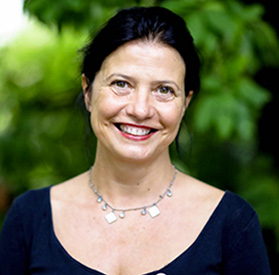 |
|
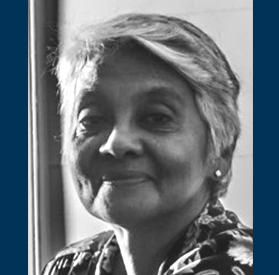 |
|
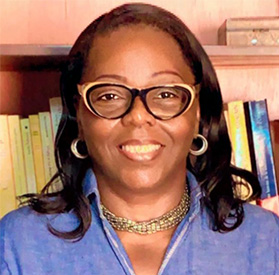 |
|
 |
|
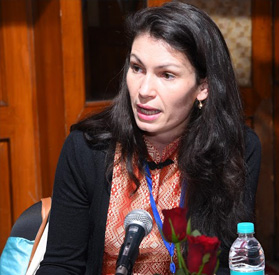 |
|
Marie Pierre Ballarin est historienne, directrice de recherche à l’Institut de
Recherche pour le Développement (IRD), membre du laboratoire URMIS
« Migrations et Sociétés » et affectée à la MSHS – SE, pôle Saint-Jean d’Angely à l’université Côte d’Azur. Elle collabore depuis plus de quinze ans avec les Musées nationaux du Kenya et l’Université catholique d’Afrique de l’Est de Nariobi. Ensemble, ils ont mené plusieurs projets de recherche sur les héritages
de l’esclavage et de la traite négrière en Afrique de l’Est. Elle est également
membre du bureau et Chercheure associée à l’USR 2002 Ciresc – Centre International de Recherches sur les Esclavages, CNRS, Paris. Elle est la principale coordinatrice du projet SLAFNET. |
|
Vijaya Teelock is a historian and former Associate Professor of History at the University of Mauritius. She founded the Centre for Research on Slavery and Indenture at the University in 2006. She was also Vice-President of the Mauritius Truth and Justice Commission, President of the International Scientific Committee of both the Slave Route Project at UNESCO and the Indentured Labour Route Project based in Mauritius.
|
|
Yvette Marie-Edmée ABOUGA est Docteure de l’Université de Poitiers et maître de conférences au département de Français de l’Université de Yaoundé I. Auteure de plusieurs contributions scientifiques dans le champ des littératures francophones postcoloniales (Sud Sahara, Caraïbes, Océan Indien). Ces domaines de prédilections sont la littératures francophones postcoloniales, déconstruction des imaginaires et des savoirs en contexte postcolonial, pensées de décentrement, dynamiques littéraires des frontières, du nomadisme et des métamorphoses, traites, esclavage et mémoires, études féminines… |
|
My name is Mr. William Mutta Tsaka of Kenyan nationality, working for the National Museums of Kenya. My current position is Curator , Jumba National Monument (Ruins) and the immediate former Curator of Mnarani National Monument, Kenya. I am the site Manager in-charge of general museum management (exhibitions and tourism), Human resource and the heritage site management. My field of specialization is museum and heritage management. |
|
Virginie Chaillou-Atrous est docteure en histoire contemporaine.Elle est chargée de valorisation pédagogique, de recherche et d’enseignement au sein de Nantes Université. Elle coordonne les activités scientifiques du LIPE (Laboratoire d’innovation pédagogique sur l’Europe) et est Project manager du programme Erasmus + Jean Monnet Teacher training FACILEUROPE (Faciliter l’enseignement de l’Europe à l’école). Elle co-dirige également un programme international de recherches DIASCOM ( Diasporas, communautarismes et re-déplacements en contextes colonial et post-colonial (XIXe-XXIe siècles) et est membre du conseil scientifique de l’International Indentured Labour Route de l’Unesco – section océan indien |
|
 |
|
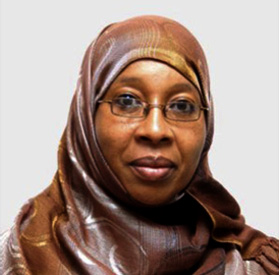 |
|
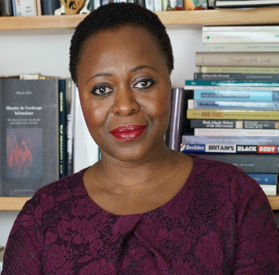 |
|
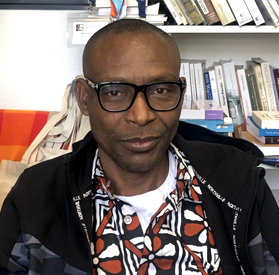 |
|
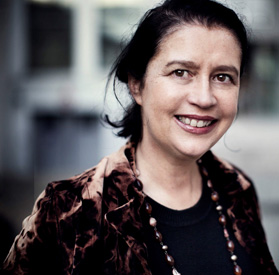 |
|
| Samuel A Nyanchoga is a professor of history. He is the current dean of the Faculty of Arts and Social Sciences at the Catholic University of Eastern Africa, coordinator of the security studies at the Tangaza University College, and a senior research fellow at the Nantes Institute of Advanced Studies, France. He has also served as the Director of the Institute for Regional Integration and Development; Director of academic programmes and HOD History department. He consults with the Kenya National Defense College on security, constitutionalism and terrorism; the AMISOM on the stabilization of the interim governments of Juba land and the South West State; Somalia. He serves as an external reviewer for the Commission for University Education; National Cohesion and Integration Commission and the Kenya Human Rights Commission. |
|
My name is Ms. Saadu Hashim Rashid, working with the National Museums of Kenya. My current position is Coordinator & Training Manager, based at National Museums of Kenya Heritage Training Institute (NMKHTI) in Mombasa, Kenya. I am in charge of planning and implementation of heritage training programmes for both staffs and other government and non-governmental organization in our country. Previously, I was the Principal Curator, Fort Jesus World Heritage Site, responsible for day-to-day management of the site.
My field areas is basically heritage management, and also Education and community participation. |
|
Dr Olivette Otele is a Reader in History at Bath Spa University, UK. Prior to her position in Bath, Dr Otele was Associate Professor at Université Paris XIII. She received her PhD from Université La Sorbonne, Paris. Dr Otele works on the linkages between history, memory, memorialisation and politics in relation to the transatlantic slavery. More broadly, her research looks at identity, race and social cohesion in Britain and France in relation to people of African descent. Dr Otele’s forthcoming and latest publications include: Afro- Europeans: a short history (Hurst, 2018); ““Liberté, Egalité, Fraternité”: Debunking the Myth of Egalitarianism in French Education” in J. Cupples and R. Grosfoguel (eds) Unsettling Eurocentrism in the Westernized University ( Routledge, 2018); “History of Slavery, Sites of Memory, and Identity Politics in Contemporary Britain” in The States of memory: International Comparative Perspectives, (eds) A. Gueye, J. Michel, (Africa World Press, 2017). |
|
Joseph Jules Sinang est enseignant au département d’histoire de la Faculté des Arts, Lettres et Sciences Humaines de l’Université de Yaoundé 1 au Cameroun, et chercheur au Centre d’Etudes et des Recherches Pluridisciplinaires sur l’Esclavage et les Traites en Afrique(CERPETA). Il s’intéresse à l’histoire environnementale et aux questions d’asservissement dans les sociétés contemporaines. Depuis 2017, il participe à de nombreux réseaux de recherche dédiées à aux questions de l’esclavage. Dès octobre 2023, il rejoindra l’Institut d’Etudes Avancées (IEA) de Nantes comme résident pour une durée de 09 mois, où il va développer son projet de recherche intitulé, « l’Esclavage dans les sociétés lignagères forestières d’Afrique centrale : Définitions, enjeux et héritages ».
|
|
Myriam COTTIAS, historienne du fait colonial, spécialiste de l’esclavage dans l’espace caribéen, est directrice de recherche au CNRS (LC2S, Université des Antilles) et directrice du Centre International de Recherche sur les Esclavages (CIRESC, USR du CNRS). Elle a été Présidente
du Comité National sur la Mémoire et l’Histoire de l’Esclavage (2013-2016). Elle a publié entre autres La question noire. Histoire d’une construction coloniale, Paris : Bayard, 2007 ;
Les Traites et les esclavages. Perspectives historiques et contemporaine, avec Antonio de
Almeida Mendes, , Elisabeth Cunin, , 2010, Paris : Karthala et, en collaboration avec Madeleine Dobie, Relire Mayotte Capécia : une femme des Antilles dans l’espace colonial
Français, Paris : Armand Colin, 2012. |
|
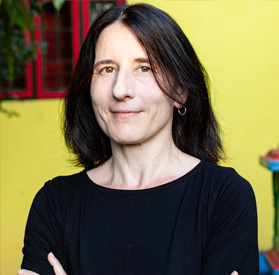 |
|
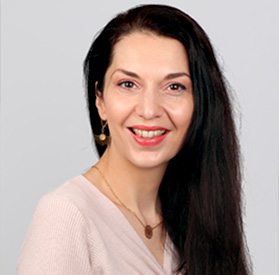 |
|
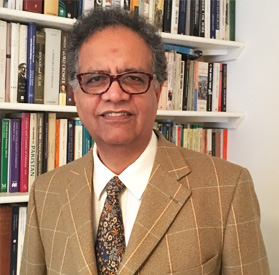 |
|
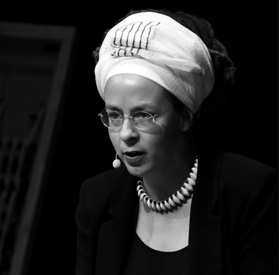 |
|
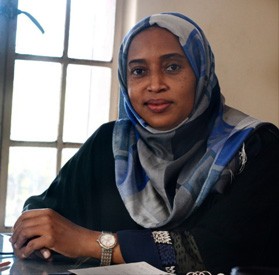 |
|
| Magdalena Bialoborska Chambel is a researcher at the Centre for History of the University of Lisbon. She holds PhD and MA in African Studies from Iscte-University Institute of Lisbon, BA in Ethnology and Cultural Anthropology from the University of Warsaw and graduated in Music from the National School of Music. She participated in several research projects, carrying out fieldwork in São Tomé and Príncipe, Guinea-Bissau, Cape Verde, Mauritius and Portugal. Her current research interests include social and cultural change in multicultural societies, sound archives, memory construction, memorialization, forgetting or silencing in history, particularly in music history. |
|
Klara Boyer-Rossol est historienne de l’Afrique, spécialiste des traites et des esclavages à Madagascar. Sa thèse de doctorat sur les Makoa à l’Ouest de Madagascar (Université Paris 7 Diderot/Université de Paris) a été distinguée par le Prix de thèse 2016 du Comité National pour la Mémoire et l’Histoire de l’esclavage (CNMHE, France). Elle s’est par la suite intéressée à explorer les liens entre les esclavages et la circulation des savoirs et des collections naturalistes sur Madagascar et l’Afrique orientale au cours du long XIXe siècle. Lauréate de plusieurs bourses postdoctorales prestigieuses (École Pratique des Hautes Études, Laboratoire d’excellence Labex Hastec, Paris ; Bonn Center for Dependency and Slavery Study, pôle d’excellence européen de l’Université de Bonn), |
|
Iftikhar H. Malik teaches modern history at Bath Spa University and is an MCR at Wolfson College, Oxford. With doctoral and post-doctoral training at Michigan State, Columbia and UC, Berkeley, his recent volumes include: Pashtun Identity and Geopolitics in Southwest Asia: Pakistan and Afghanistan since 9/11 (Anthem, 2016); Pakistan: Democracy, Terror and the Building of a Nation, (New Holland Publishers, 2010); The History of Pakistan (Greenwood Press, 2008); and Crescent between Cross and Star: Muslims and the West after 9/11, (OUP, 2006). Oxford University Press is publishing Iftikhar’s forthcoming book, The Silk Road and Beyond: Narratives of a Muslim Historian. He is the also the co-editor of Muslims and Western Europe in the Modern Era: Contemporary Debates in Historical Perspective, a Bloomsbury volume (2018). |
|
Giulia Bonacci is a historian, IRD researcher posted at URMIS, Université Côte d’Azur, France. She studies the place of Ethiopia in the intellectual history and the popular cultures of the African Diaspora since the 19th century, Pan Africanism, the Rastafari movement, and the legacies of slavery in Ethiopia. Her book Exodus! Heirs and Pioneers, Rastafari Return to Ethiopia (University of the West Indies Press, 2015) received two awards in the USA. A scientific editor of various books and journals, her latest papers were published in Oxford Research Encyclopedia of African History, Gradhiva, Global Africa, Esclavages & Post-esclavages, IDEAZ, Tumultes, Northeast African Studies, The International Journal of African Historical Studies, Volume!, and New West Indian Guide.
|
|
Ms. Fatma Twahir is Kenyan, working with the National Museums of Kenya as the Principal Curator of Fort Jesus World Heritage Site. She holds a Bachelor’s degree in architecture and
MSc in Environmental Engineering. Fatma is also an accomplished Lead Environmental Expert registered by National Environmental Management Authority of Kenya (NEMA) and a trained Conservationist in Built Heritage and Disaster Risk Management. |
|
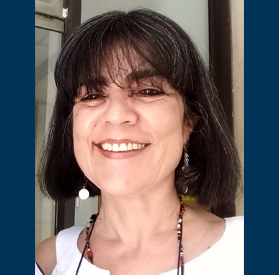 |
|
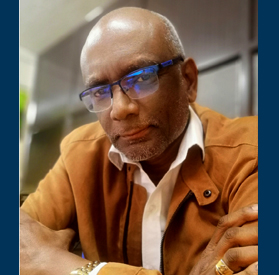 |
|
 |
|
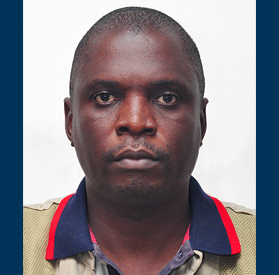 |
|
 |
|
| Eugénia Rodrigues is a Researcher at the Center for History of the University of Lisbon (Centro de História da Universidade de Lisboa) and she teaches History of Africa and History of Empires at the School of Arts and Humanities (Faculdade de Letras) of the same university. Her research and publications focus on the social history of early modern Mozambique and the Indian Ocean, mainly concerning territorial appropriation, slavery, gender, intercultural representations, and circulation of African knowledge. |
|
Doorga Ujodha is based at the University of Mauritius since 1994 in the UoM Press, he is in charge of the digital printing section as graphic designer and supervisor for overall print production. Member of the “The Centre for Research on Slavery and Indenture” University of Mauritius (CRSI) he worked on many publications, international conferences and exhibitions on history and heritage. Digital Archivist for the Truth and Justice Commission (Mauritius) he joined the SLAFNET project in 2017 as technical researcher in Database, Digital archiving and inventory. He is in charge of the online platform “Inventory and digital library of materials on slave trade, slavery, indenture and other forms of unfree labour” for SLAFNET work package 4. |
|
Benedetta Rossi is Professor of History at University College London. She is the author of From Slavery to Aid (CUP, 2015) and the editor of Reconfiguring Slavery: West African Trajectories (LUP, 2009, 2 nd ed. 2016) and Les Mondes de l’Esclavage: Une Histoire Comparée (Seuil, 2021, with P.Ismard and C. Vidal). She is primary investigator of the ERC Advanced grant African Abolitionism
(AFRAB), 2020-25. |
|
Ashikoye Okoko is an accomplished photographer, photo archivist and multimedia practitioner based in Mombasa at Fort Jesus Museum World Heritage Site. I document, present and
disseminate historical, cultural and natural heritage of Kenya using audio visual media. I also
carry out research.
|
|
Alexander Meckelburg is a historical anthropologist. He is research fellow at the Department of History with the ERC-funded project “African Abolitionism: The Rise and Transformations of Anti-Slavery in Africa (AFRAB)”. He carries out research on the history of slavery and abolition in Ethiopia.
Since 2020 he is a member of the editorial board of the journal Aethiopcia: International Journal for
Ethiopian and Eritrean Studies (https://journals.sub.uni-hamburg.de/aethiopica/about).
His research interests include the social and political history of Ethiopia and the Horn of Africa, race, slavery, labor and migration, political culture and citizenship. |
|
 |
|
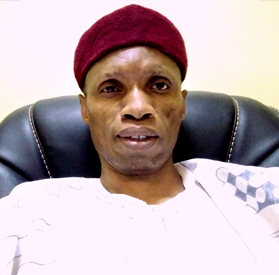 |
|
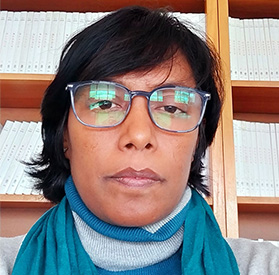 |
|
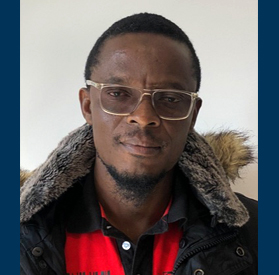 |
|
|
|
| Dr. Ahmed Hassen holds B.A. (Addis Ababa University, in 1987), M.A. (Addis Ababa University, 1994), DEA (M.A.) (Université de Provence Aix-Marseille I, France in 2001) and PhD (Université Paris I Pantheon Sorbonne in 2007). He has been assigned by Addis Ababa University to teach several undergraduate courses (1994-1999); and undergraduate and graduate courses at the university (since 2012). He has published several articles in Reputable Scientific Journals, in book chapters and translated and edited two books and co-edited two books. Before being appointed by Addis Ababa University as Director of the Institute of Ethiopian Studies in 2012, he had been program coordinator of Post Graduate Studies in the Same Institute. He currently collaborates with several centers of African Studies in Europe, USA and Japan in Fareast Asia. |
|
Ahmadou SEHOU est enseignant-chercheur en histoire politique et sociale à l’Université de Maroua (Cameroun). Ses travaux portent sur l’histoire de l’esclavage, de la traite et de leurs mémoires dans les contextes africains, atlantiques et islamiques. Il a été Chercheur-Résident à l’Institut d’Etudes Avancées de Nantes (IEA) promotion 2020-2021. Il participe également au Projet européen « Slavery in Africa: a dialogue between Europe and Africa » (Slafnet-Rise H2017-2023). Il est membre associé du Centre de Recherches en Histoire Internationale et Atlantique (CRHIA, Nantes Université et Université de La Rochelle) et de l’Association internationale les Anneaux de la Mémoire avec laquelle il a mené plusieurs études sur les sites de mémoire et les musées. Il est également fondateur-coordonnateur du Centre d’Etudes Pluridisciplinaires sur l’Esclavage et la Traite en Afrique. |
|
Jayshree Mungur-Medhi is an archaeologist and heritage professional in Mauritius. She works on colonial archaeology, archaeology of slavery and in heritage management and intangible cultural heritage.
She is presently undertaking her PhD on History and Archaeology at Ecole des Hautes Etudes en Sciences Sociales in France.
|
|
Samson Mengolo Mbel est enseignant-chercheur au département d’histoire et des civilisations africaines à l’Université de Buea (Sud-Ouest du Cameroun). Ses
recherches portent sur l’Archéologie des périodes historiques, les processus de patrimonialisation, les représentations et les usages du passé de la traite et de l’esclavage au Cameroun méridional. Membre du Centre d’Études et de Recherches Pluridisciplinaires sur l’Esclavage et la Traite en Afrique, il participe dans les programmes Slafnet, Slamranet et Afrab.
|
|
Myrina Meunier, diplômée d’un Master of Sciences en geosciences : energy and resources de l’Université de la Ruhr en Allemagne, a débuté sa carrière au sein du service Science et Technologie de l’Ambassade de France à Berlin. Apres avoir travaillé à la mise en place de coopération franco-allemandes principalement dans le domaine des sciences environnementales elle a rejoint Moselle Développement, l’Agence de développement économique du Conseil Général de la Moselle. Responsable du bureau berlinois, elle s’est employée à développer des coopérations industrielles créatrices de valeur ajoutée dans le but d’accroitre l’attractivité et à la compétitivité de ce territoire. |
|

























